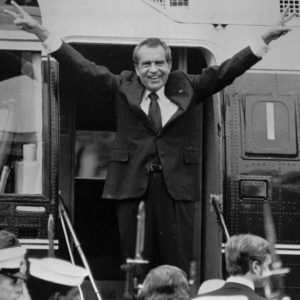As we look back on the 2020 election and the subsequent transition from the Trump to the Biden administrations, it seems almost certain that this will be viewed by both historians and the public as among the worst transitions in American presidential history.
But it does not stand alone.
While it is absolutely clear a mere week after the election this transition from the 45th to 46th president of the United States is going to be historically difficult, there have been several other presidential transitions throughout history that have been rocky for different reasons.
The transition from President Carter to President Reagan was a difficult one because of the global political situation at the time. While it is true that Reagan and Carter were as different personally and ideologically as presidents can probably be, the most significant obstacle in this transition was what the situation on the ground in Teheran.
President Carter was reported to have worked many 20-hour days in the transition following his election defeat until President Reagan’s inauguration in order to free the hostages. The welcome result of his work was not evident until Reagan took office, leaving both a happy and sad historical footnote for America and the inaccurately uncharitable legacy of the Carter presidency.
Some presidential transitions have been extremely difficult because of the personal relationship between the sitting and elected president. That was certainly the case with Dwight Eisenhower’s election following the two term presidency of Harry Truman.
Their personal battle grew from perceived betrayals of the foundation of strong cooperative work if not even personal friendship. At one point, President Truman was considering nominating Dwight Eisenhower to become the Democratic candidate for president.
Obviously that didn’t work out, as Eisenhower became the Republican candidate and was soon the president-elect. The transition period from the election to inauguration was marred by a complete lack of civility between the two which included Eisenhower refusing to attend a holiday lunch at the White House and refusing to meet President Truman before the inauguration ceremony, marking another break with tradition.
It is impossible to have a discussion about the worst presidential transitions without mentioning the historical one-day transition from President Nixon to incoming President Ford.
The timing of this transition was reminiscent of the darkest moments in American history where a president is killed while in office. But rather than the nation dealing with the physical death of a president, they were watching the Nixon presidency euthanized in real time.
While history looks through a glass darkly at the brief Ford presidency, it is important to remember that he was vice president for only eight months before having 25 hours to assume the office. Even the most capable and savvy of politicians, which Ford was not, would have found this transition difficult to bear. Charged with the ominous responsibility of leadership of a nation in peril, this difficult transition did nothing to help Ford get off on the right foot.
But to find what many historians believe to be the worst transition in American presidential history, we have to go back to 1861 and the ascension of Abraham Lincoln to the office of president.
While we talk a lot today about how the United States is a nation divided, in 1861 seven states in the U.S. South had left the union shortly before Lincoln‘s presidency.
What made the transition tenuous from election day was the result itself. At just under 40 percent of the popular vote, President Lincoln had a smaller plurality in the election than any president in American history aside from John Quincy Adams, who won the 1824 election with less than 31 percent of the vote.
As history reminds us, what actually turned the Lincoln transition from arguably the worst historically to one of the best starts to a presidential term was his long train journey to Washington D.C. On this journey, he was able to change American public opinion by bringing out massive crowds. By the time he arrived in Washington, the legend and myth that we recognize as Abraham Lincoln today had begun to form.
The week after a presidential election is early to predict the legacy of the next president.
Yet history has shown that while many difficult presidential transitions retain the same strained tone throughout the presidency, it is also possible to transform a difficult transition into a successful presidency.

